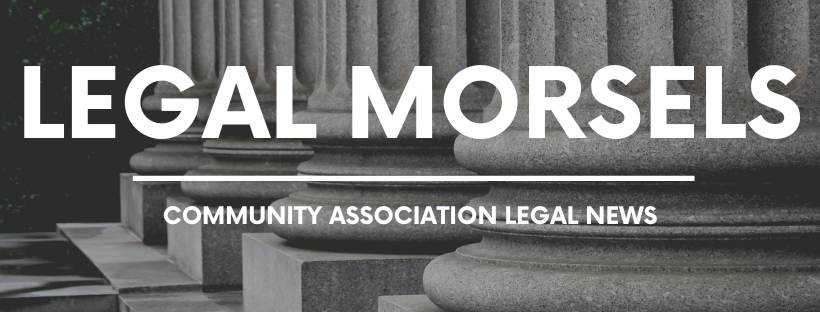 Written by Andrew B. Black, Esq. BCS, Kaye Bender Rembaum, P.L.
Written by Andrew B. Black, Esq. BCS, Kaye Bender Rembaum, P.L.
It is not uncommon for a board of directors to be faced with requests from owners involving accessing the official records of the association. Florida law, as set forth in the applicable statutes for condominium, homeowner, and cooperative associations, provides detailed requirements for the maintenance and inspection of the official records (as well as which records are exempt from such inspections). Among other key provisions, the law requires the official records to be maintained in an organized manner that allows for an easy inspection by an owner. Importantly, upon receipt of a proper request, the records must be made available to the requesting owner within ten (10) working days from receiving the request. If a timely response to the request is not provided, the statutes create a rebuttable presumption that the failure to comply was willful, which can result in sanctions and monetary damages for the owner. Further, repeated and knowing violations of the statutes can even lead to misdemeanor charges in certain situations. Accordingly, it is vital that the board has a clear understanding regarding its official record inspection responsibilities under the applicable statutes to avoid such a bad result for the association.
In a recent decision of the Florida Fourth District Court of Appeal, in Alberto M. Ruiz De Gamboa v. Newth Gardens Condominium Association, Inc., Case No. 4D2024-0217, June 4, 2025 (“Newth Gardens”), the Court reviewed the actions taken by the Board of Directors of Newth Gardens Condominium Association, Inc. (the “Association”) in handling a written request by an owner to have access to its official records. The Association was found by the appellate court to have willfully denied access to the records.
The relevant facts of the case are that the President of the Association claimed that, upon receipt of the request by the owner, he had a letter timely mailed to the owner setting an appointment for the inspection. However, the owner claimed the scheduling letter was never received by him. At trial, the President testified that he “probably gave [the association’s response] to one of [his] staff members to mail”. Prior to commencing legal action, the owner sent a second letter to the Association informing the Board he had not received any response to the original request, allowing the Association to cure any issues by now making the records available. However, the Association did not offer the owner any further responses. The owner brought the matter to arbitration with the Division of Condominium, who ruled in favor of the owner. The Association appealed that ruling to the Circuit Court, which decided that the Association letter was likely lost in the mail and that it was not willful in its denial of access. The owner appealed to the 4th DCA, which resulted in this opinion.
The Appellate Court decided that there was not any competent and substantial evidence presented at the trial by the Association (such as an affidavit swearing that the original scheduling letter was mailed, or other evidence of regular business practices that a staff member mailed the letters for the President). Consequently, there is a presumption that the Association willfully failed to comply, and that such presumption could have been rebutted by the Association. However, since the Appellate Court decided that no credible rebuttal was offered at trial by the Association, as the failure to provide the requested records for inspection within 10-working days occurred, and, that the additional non-response by the Association when the owner tried again doomed any argument made by the Association that its actions were not willful, the Court ruled in favor of the owner and reversed the decision of the Trial court.
The key takeaways for board members are to carefully track each and every request it receives by an owner to inspect the official records and to document internally the 10-business day deadline to comply and a clear designation as to who will reply to the request on behalf of the association. Further, the statutes allow a board to adopt reasonable rules regarding the frequency, time, location, notice, and manner of record inspections and copying. As such, if your community does not already have these rules, you should contact your legal counsel to assist in drafting these policies. For instance, requiring record inspection requests to be sent via certified mail, return receipt requested and/or to reasonably limit the number of requests per 30-day period have been ruled as reasonable and can help streamline the record inspection process and avoid repetitive requests. Additionally, legal counsel should be contacted to confirm the recent requirements for communities of certain sizes to maintain an association website where several official records must be posted and available to owners, as well as having your association counsel confirm any “checklist” requirements that must be provided to condominium unit owners.
Without careful attention being paid to these record inspection requests, and without such clarity in your community policies, the association can find itself facing the possibility of having to rebut a presumption that its failures were willful, which can create potential significant damages and sanctions. The unnecessary costs to the association of such an occurrence can be avoided with proper planning. Legal counsel familiar with the applicable community association statutes (Chapters 718 for condominiums, 719 for cooperatives, and 720 for homeowner associations) should be involved to assist with these matters.

